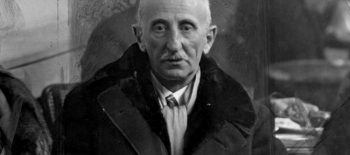May 5-June 1, 2023
Metrograph
7 Ludlow St, New York
NY 10002
Email us at nyc.office@instytutpolski.pl for a 40% discount code on Metrograph Membership. Metrograph Membership gives you access to all films streaming At Home, special premieres, conversations with favorite filmmakers, and Metrograph Editions. You’ll also receive discounts at the Ludlow Street location for the Commissary Restaurant, Bookstore, and $10 Member tickets at the Box Office (normally $17).
We are proud to announce a retrospective of films by Jerzy Skolimowski, opening at Metrograph on May 5, 2023, the day of Skolimowski’s 85th birthday. Please note, the Metrograph website and ticket sales will be updated over time to include upcoming screenings. Read The Metrograph Interview: JERZY SKOLIMOWSKI IN CONVERSATION WITH SEAN PRICE WILLIAMS.
Poet, actor, painter, screenwriter, and director, Jerzy Skolimowski is a creative whirlwind who—even after leaving his native Poland in search of greater artistic freedom—has never stopped working, and with 2022’s EO, produced one of the finest works of an already legendary career. After co-writing the screenplays for Andrzej Wajda’s 1960 Innocent Sorcerers and Knife in the Water, the 1962 debut feature of Roman Polanski, a fellow graduate of the Polish Film School in Lodz, Skolimowski exploded onto the international film scene with his own brilliant breakout works, Identification Marks: None and Walkover, films of youthful brio and rebellion starring the director as alter ego Andrzej Leszczyc. His peripatetic career would see him making masterworks in Belgium, the UK, and the US before a triumphant return to post-Communist Poland where, now in his eighties, he continues to make films distinguished by their spirit of exuberant experimentation.
Co-presented with Metrograph.
This event is part of #PolishHeritageDays celebrations.
Program
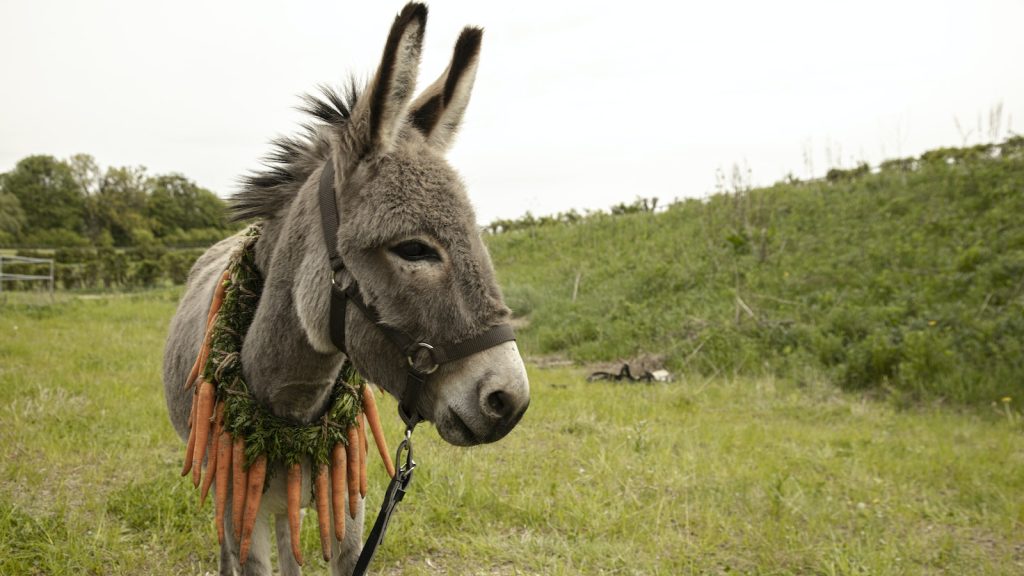
EO
dir. Jerzy Skolimowski, 2022 86 min, DCP
Friday, May 5 at 5:15pm
One of the most radically experimental narrative films of last year came courtesy of legendary Polish director Skolimowski who, well into his eighties, is taking risks most emerging young filmmakers wouldn’t dream of. A road movie that looks at contemporary Poland through the eyes of a wandering donkey (as well as several other astonishing coup de cinéma perspectives), EO takes some inspiration from Robert Bresson’s Au Hasard Balthazar, but where Bresson avoids psychological interiority, Skolimowski shows a wide variety of human folly as it might appear to a much-persecuted animal, in the process creating one of his most memorable protagonists.
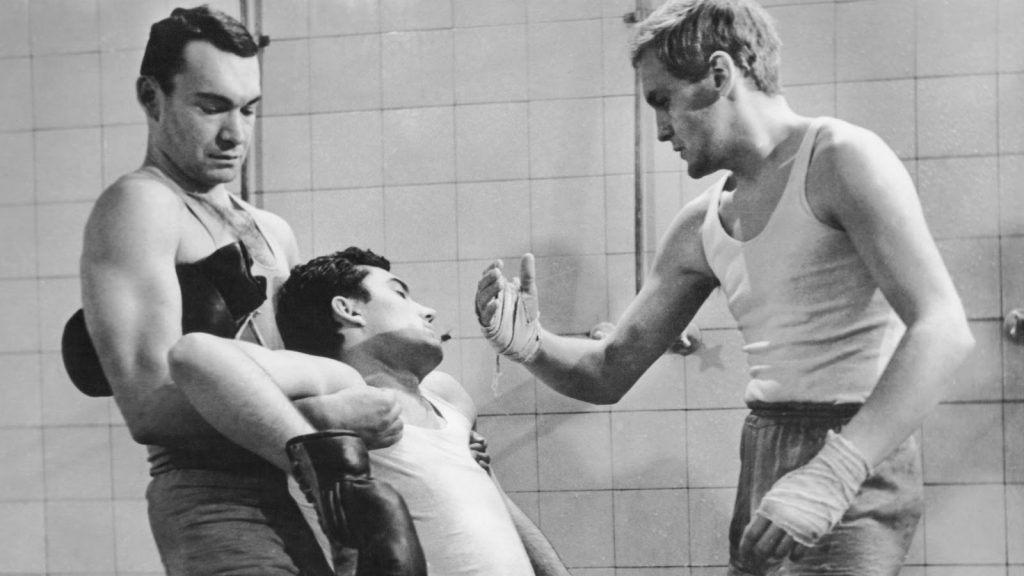
Walkover
dir. Jerzy Skolimowski, 1965, 77 min, DCP
Saturday, May 6 at 5:30pm
Skolimowski returns to the role of Andrzej Leszczyc in the atmospheric second film of his Leszczyc trilogy, in which the director’s authorial alter ego has grown up into a sullen, footloose amateur middleweight boxer, newly arrived in a haunted factory town to take part in a contest for young fighters, though he himself is pushing 30. (Significantly, the film contains only 29 individual set-ups.) Adding inestimably to the film’s feeling of dreamlike drift is the score by Skolimowski’s friend and collaborator, the great jazz composer Krzysztof Komeda. Cahiers du cinéma’s #2 film of 1966.
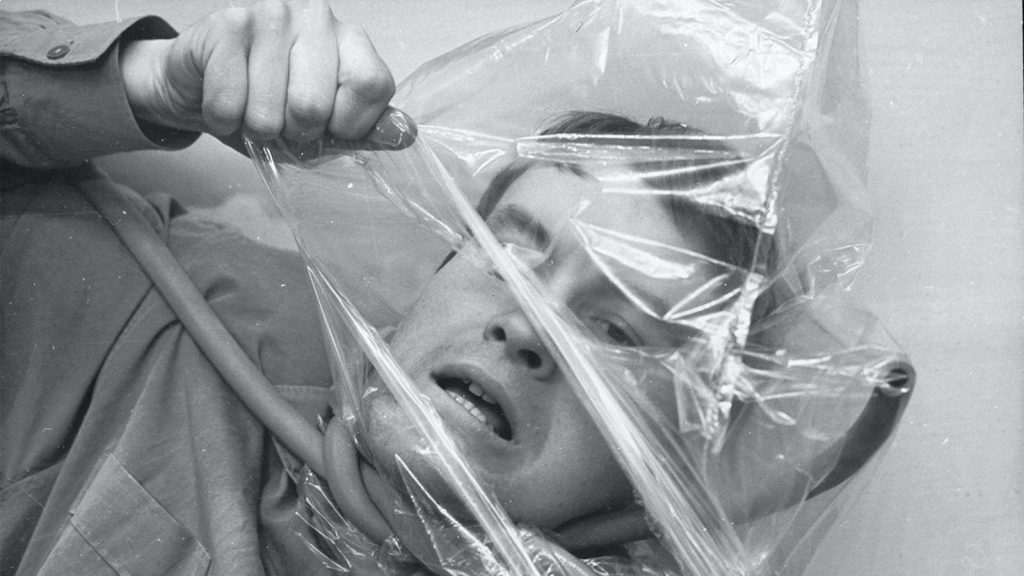
Hands Up!
dir. Jerzy Skolimowski, 1981, 76 min, DCP
Saturday, May 6 at 1:15pm
Skolimowski had started to film this, the final film in his Andrzej Leszczyc trilogy, back in 1967, until the interference of Polish censors caused him to abandon the project and leave his homeland. Invited to revive the project by the liberalizing Polish government 14 years later, Skolimowski appended a color prologue in which he ruminates on his life in exile to the original black-and-white footage, a surreal satire of ’60s materialism that also looks back to the horrors of World War II and Stalinism.
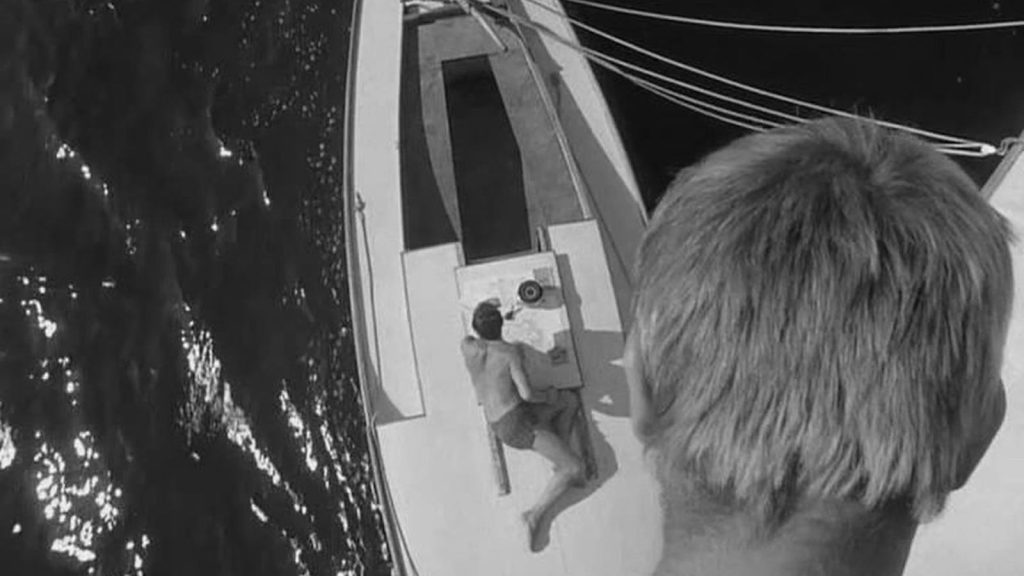
Knife in the Water
dir. Roman Polanski, 1962, 94 min, 35mm
Preparing to make his debut feature, Polanski recruited his old friend and Lodz Film School classmate Skolimowski to co-write the screenplay. The result is a riveting drama about a husband and wife who invite a student hitchhiker onto their yacht after almost running him over, its war-of-wills between the older and younger men presaging the central importance of intergenerational tension in Skolimowski’s early films. Already a master at carefully modulating tension, Polanski gets an invaluable assist from Krzysztof Komeda’s jazz score.
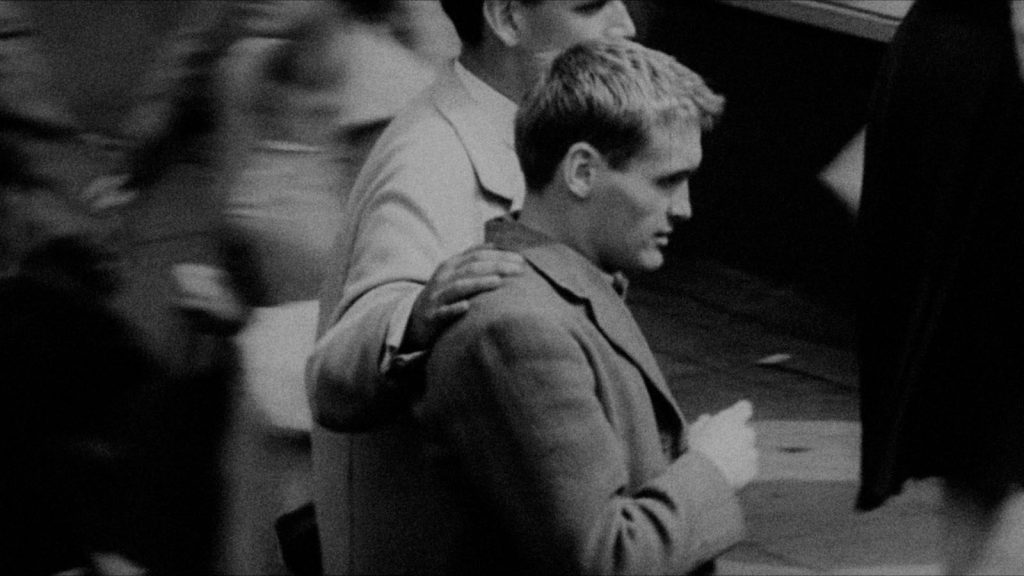
Identification Marks
dir. Jerzy Skolimowski, 1965, 73 min, DCP
Sunday, May 7 at 7:00pm
Skolimowski was still a student at the Lodz Film School when he finished his melancholic semi-autobiographical debut feature, the first title in his Andrzej Leszczyc trilogy, a stylish study in youthful aimlessness starring Skolimowski as the titular young man who’s suddenly thrown his university studies and his girlfriend aside to join the army, and whom we see passing his final hours of freedom charting an idle course through a subtly surreal cityscape filled with ambient menace.
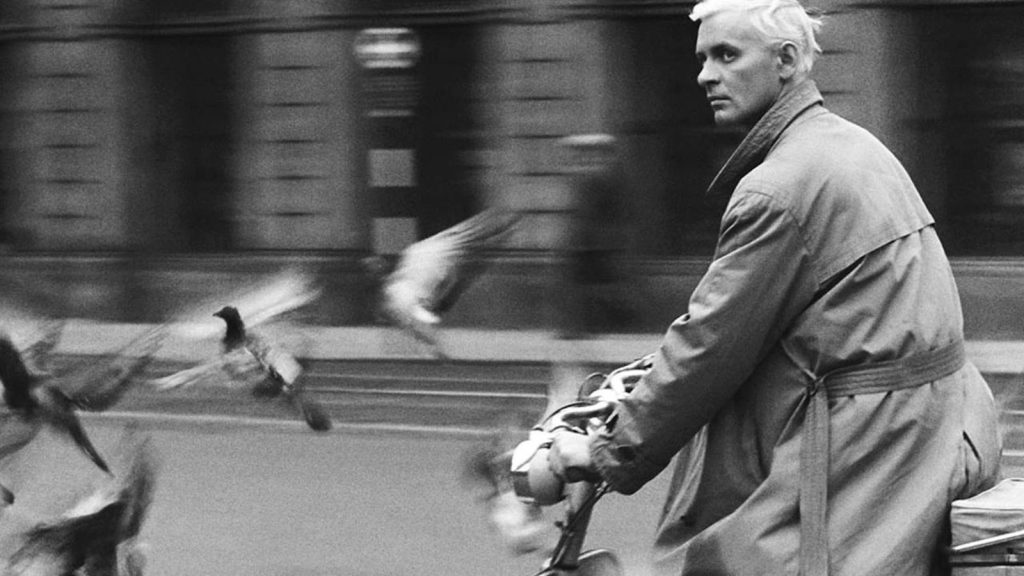
Innocent Sorcerers
dir. Andrzej Wajda, 1960, 87 min, DCP
Sunday, May 7 at 6:30pm
The story goes that when Andrzej Wajda, the most acclaimed Polish director to emerge in the postwar period, first met Skolimowski, Wajda showed the young poet the original script of Innocent Sorcerers, and when he criticized its depiction of youth culture, Wajda invited Skolimowski to rewrite it himself. The story of a twentysomething doctor (Tadeusz Łomnicki) who spends his evenings jazz drumming and flirting freely—until he passes a long night with a woman (Krystyna Stypulkowska) whose more than his match as a conversationalist and master of mind games.
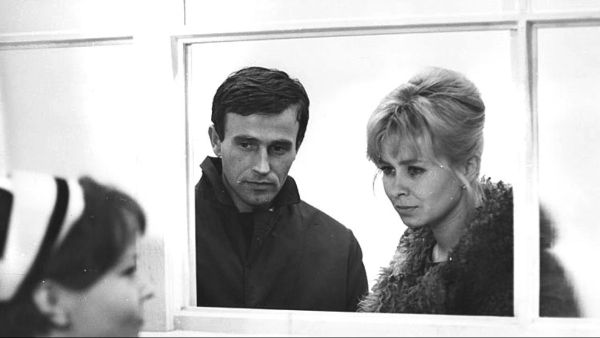
Barrier
dir. Jerzy Skolimowski, 1966, 77 min, DCP
Friday, May 12 at 4:45pm
Skolimowski’s romantic, exuberant Barrier features Jan Nowicki as its nameless protagonist, an alienated medical student who abruptly abandons his studies to plunge into self-analysis and play the floating flâneur in the streets of Warsaw, his various encounters including a beautiful tram driver and his senile pensioner father. Shot in solemnly sumptuous black and white, it’s a film that exudes a feeling of reckless invention and youthful spontaneity, from its dialogues to Krzysztof Komeda’s jazz score to its unexpected shifts into slapstick satire.
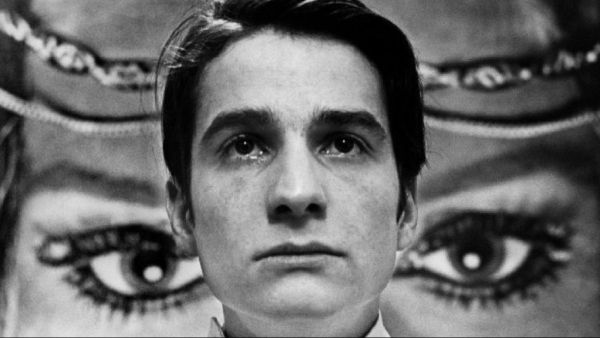
Le Départ
dir. Jerzy Skolimowski, 1967, 93 min, DCP
Friday, May 12 at 2:45pm
Saturday, May 18 at 7:00pm
To make his first film outside of Poland, Skolimowski headed to Brussels to team up with Jean-Pierre Léaud, Catherine Duport, and cinematographer Willy Kurant—all fresh from the set of Godard’s Masculin Féminin. The result was the alternately frenetic and lyrical Le Départ, in which Léaud plays a gearhead hairdresser determined to drive his boss’s Porsche in a rally car race, a stinging satire of manic materialism which derives its antic energy from Léaud’s hyperkinetic speed demon performance and Krzyztof Komeda’s score, which ranges from passages of moody melancholy to clangorous free jazz.
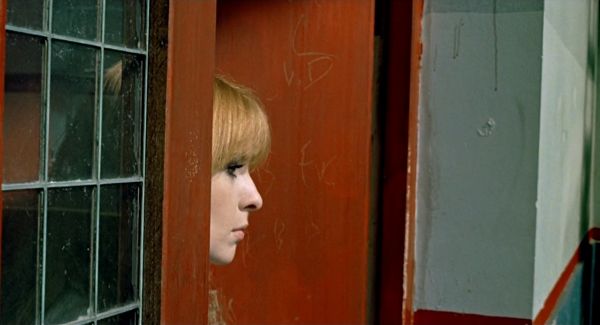
Deep End
dir. Jerzy Skolimowski, 1970, 91 min, DCP
Saturday, May 13 at 7:40pm
Sunday, May 14 at 9:30pm
Skolimowski’s first film in the United Kingdom finds him surveying the English scene with a jaundiced eye in the darkly comic tale of a high school drop-out (John Moulder Brown) who takes a job serving lusty middle-aged matrons at a crumbling London bathhouse, where he soon develops a consuming obsession with co-worker Jane Asher. An antidote to the advertiser’s myth of Swinging London which depicts a society seething with sexual repression, featuring the music of Cat Stevens and Krautrock giants Can (then billed as The Can), whose epic “Mother Sky” is put to phenomenal use in one of the film’s several standout set pieces.
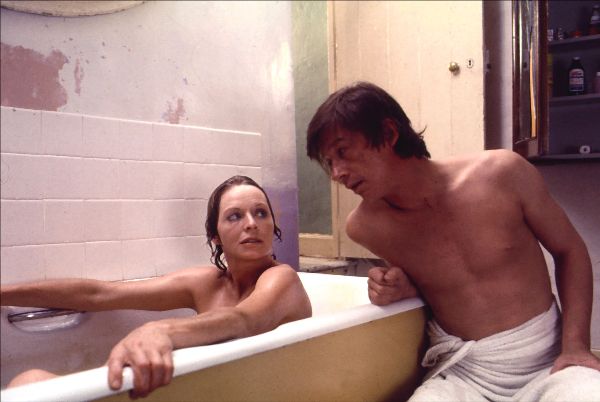
The Shout
dir. Jerzy Skolimowski, 1978, 86 min, DCP
Sunday, May 18 at 9:15pm
On an isolated stretch of the Devon shoreline, experimental field recordist John Hurt and wife Susannah York receive an unexpected visitor: a mysterious, seductively charismatic vagabond (Alan Bates) who claims to be able to kill with his vocal cords, and who shortly begins to wield an unusual influence over the couple. York’s performance of saucer-eyed enthrallment sets the unsettling tone of Skolimowski’s eerie, hypnotic thriller, while the insinuating score by Tony Banks and Michael Rutherford of Genesis—abetted by electronic music pioneer Rupert Hine—adds another layer to the rich, menacing aural landscape of The Shout, a film that uniquely addresses the wonderful, terrible power of sound.
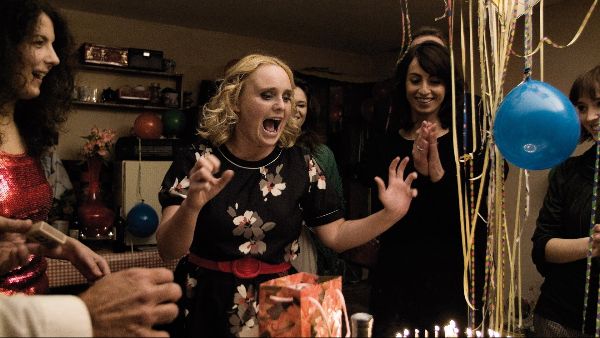
Four Nights With Anna
dir. Jerzy Skolimowski, 2008, 87 min, 35mm
Saturday, May 20 at 7:50pm
Tuesday, May 30 at 9:15pm
Made after a 17-year hiatus following the unhappy production of Thirty Door Key (1991), Four Nights with Anna finds Skolimowski an artist rejuvenated, collaborating for the first time with wife Ewa Piaskowska. Set in Poland’s rural northeast, the film follows Leon (Artur Steranko), a tongue-tied middle-aged mortician’s assistant who, after serving a stint in prison for a rape he witnessed but did not commit, begins a strange ritual of visiting the victim, a nurse named Anna (Kinga Preis) as she sleeps. A mysterious, ascetic, nocturnal film, steeped in desire and guilt, which announced the beginning of Skolimowski’s triumphant second act.
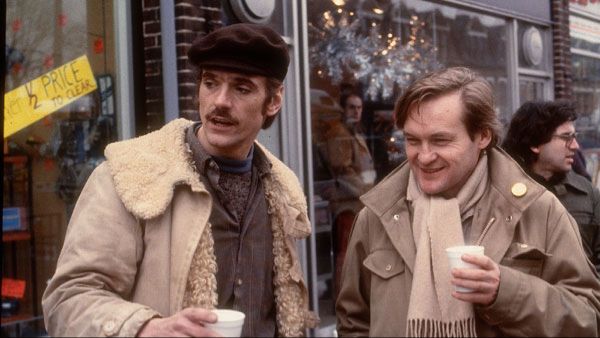
Moonlighting
dir. Jerzy Skolimowski, 1982, 97 min, Digital
Saturday, May 20 at 3:15pm
Sunday, May 21 at 2:45pm
Inspired and outraged by the imposition of martial law in Poland in December of 1981, Skolimowksi, then living in London, offered an artistic response to events with the nuanced political allegory Moonlighting, starring a young Jeremy Irons—in an early lead role—as a Polish contractor in England working in imposed isolation with four other illegals to renovate a flat owned by a corrupt countryman. (In fact, Skolimowski’s own London apartment.) A poignant, crushingly claustrophobic portrayal of the exile’s twinned alienation from both homeland and a foreign culture. “Possesses such clarity of vision and simplicity that it seems to have been made in one uninterrupted burst of creative energy. It’s a small, nearly perfect work of its kind.”—The New York Times

11 Minutes
dir. Jerzy Skolimowski, 2015, 81 min, DCP
Saturday, May 27 at 6:50pm
Monday, May 29 at 5:10pm
A virtuoso thriller with a wildly original structure, Skolimowski’s film—described by the director as “an answer to the Hollywood action movies”—is comprised of vignettes showing the same 11 minutes in the lives of a variety of different, mostly unrelated characters in contemporary Warsaw, among them a jealous husband, his actress wife, a lascivious hot dog vendor, a crew of paramedics, a sleazy small-time producer, and an elderly painter (Barrier star Jan Nowicki). These disparate slices of life find Skolimowski reflecting on the self-imposed surveillance state created by ubiquitous digital cameras, and which unite in an explosive climax at the end of the 11-minute countdown.
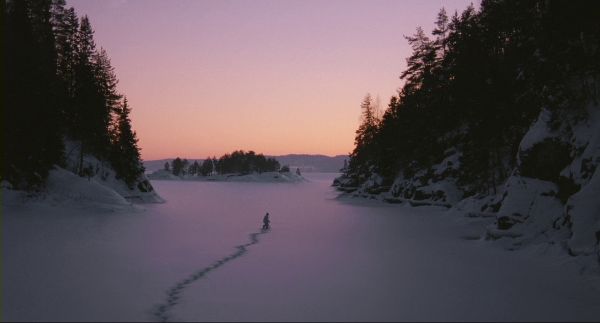
Essential Killing
dir. Jerzy Skolimowski, 2010, 83 min, DCP
Sunday, May 28 at 8:45pm
Monday, May 29 at 6:40pm
Thursday, June 1 at 9:15pm
A harrowing, relentless, and deeply ambiguous depiction of persecution and flight, Essential Killing stars Vincent Gallo as a man—perhaps a Taliban soldier, perhaps just a patsy caught up in the overzealous global War on Terror—shipped from Guantanamo to Eastern Europe, where an accident allows him to escape from captivity. Plunging into the snowy woods of Poland and fighting for survival, Gallo gives a feral and nearly wordless performance in a film that, in its focus on a protagonist driven hither-and-tither by events beyond their control, in many ways presages Skolimowski’s EO.



